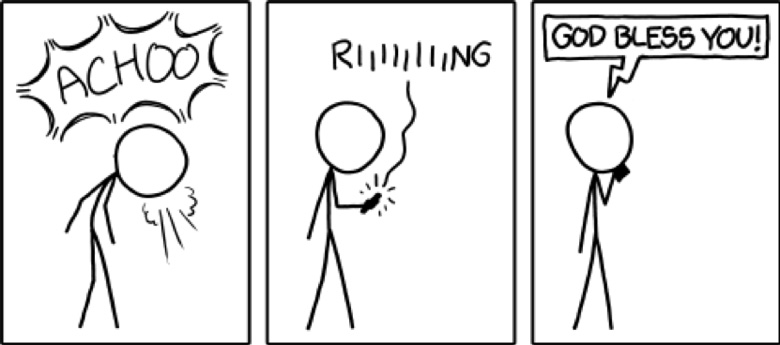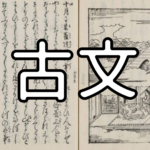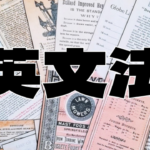2022/08/25

目次
中学生向け高校受験
高校生向け大学受験対策
大学受験対策
英語長文読解リスニングトレーニング教材
読解・リスニング練習用の本文は「News in Levels」からの引用です
The text for reading and listening practice is taken from News in Levels

高校受験用・中学レベル
※音読トレーニングの方法は記事後半で解説しています。
出典元へのリンク
News in Levels “Why we say “God bless you” – level 1”
スクリプト
People sometimes sneeze when they have a cold. Or they sneeze when something bothers their nose. Their nose gets full. Suddenly, air comes from their nose and mouth.
People usually say “God bless you” when someone sneezes. Some countries say other things. In Spanish language countries, people wish good health when someone sneezes.
Nobody really knows why people say, “God bless you.” People have some ideas about it.
In the past, a plague happens in a lot of the world. People are scared. The disease is very dangerous. Someone who sneezes is sick. People ask God to keep him safe from the plague.
These days, people say these words normally. For many people, it is polite.
native音声
和訳
なぜ “God bless you “と言うのか?
人は風邪をひいたときにくしゃみをすることがある。あるいは、鼻が気になるときにくしゃみをする。鼻がいっぱいになる。突然、鼻と口から空気が出てくる。
通常、くしゃみをした人は「God bless you(神のご加護を)」と言います。他のことを言う国もある。スペイン語圏では、くしゃみをした人の無病息災を祈る。
なぜ “God bless you “と言うのか、本当のところは誰も知らない。人々はそれについていくつかの考えを持っている。
昔、世界のあちこちで疫病が起こった。人々は怯えた。その病気はとても危険だ。くしゃみをした人が病気になる。人々はペストから守ってくれるよう神に願う。
最近、人々はこのような言葉を普通に口にする。多くの人々にとって、それは礼儀である。
大学受験用・高校レベル
出典元へのリンク
News in Levels “Why we say “God bless you” – level 3”
スクリプト
Why do we say “God bless you” when someone sneezes? People cannot say exactly when or where the response started; however, we have some theories.
A long time ago, people thought that when someone sneezed, snot and the soul escaped, too, and to say “God bless you” was to help. Another theory is from the 6th century when a plague struck Europe, and Pope Gregory I formally ordered people shout out blessings to protect someone who sneezed. Similarly, in the 14th century during the bubonic plague, sneezing was a sign that a person might be sick with the plague.
Today, the reaction is mostly ingrained, and people think it is polite. However, people don’t use it worldwide. For example, in Spanish speaking countries, people say “salud”, which can be translated to “good health”.
スクリプト(注釈入り)
Why do we say “God bless you” when someone sneezes【くしゃみをする】? People cannot say exactly when or where the response started; however, we have some theories.
A long time ago, people thought that when someone sneezed, snot【鼻水】 and the soul escaped, too, and to say “God bless you” was to help. Another theory is from the 6th century when a plague【疫病】 struck【襲う】 Europe, and Pope【教皇】 Gregory I formally ordered people shout out blessings to protect someone who sneezed. Similarly, in the 14th century during the bubonic plague【腺ペスト】, sneezing was a sign that a person might be sick with the plague.
Today, the reaction is mostly ingrained【定着するp.p.】, and people think it is polite. However, people don’t use it worldwide. For example, in Spanish speaking countries, people say “salud”, which can be translated to “good health”.
native音声
和訳
誰かがくしゃみをしたとき、私たちはなぜ「神のご加護を」と言うのだろうか?いつ、どこで始まったのかは定かではないが、いくつかの説がある。
大昔の人々は、誰かがくしゃみをすると鼻水と魂も逃げ出すと考え、「神のご加護を」と言うことで救われると考えていた。また、6世紀にヨーロッパで疫病が流行した際、教皇グレゴリウス1世がくしゃみをした人を守るために、人々に祝福の言葉を叫ぶよう正式に命じたという説もある。同様に、14世紀のペストの時代には、くしゃみはペストに感染している可能性を示すサインだった。
今日、この反応はほとんど定着しており、人々はそれが礼儀だと考えている。しかし、世界中で使われているわけではない。例えば、スペイン語圏では「salud」( “健康 “と訳すことができる)と言う。
単語・イディオム
snot
名
〈俗〉鼻水、鼻くそ
〈俗・軽蔑的〉うっとうしい[生意気な]やつ[ガキ]
〈俗〉鼻を殴ること
他動
〈俗〉〔鼻水を〕出す、垂らす
発音[US] snɑt | [UK] snɔt、[US]スナト、[UK]スノト
plague
名
〔天罰と見なされる〕大厄災、大災難
《病理》〔致命的な〕伝染病、疫病
《医》腺ペスト◆【同】bubonic plague
〔害虫などの〕大発生、異常発生
〈話〉厄介な人[物]、悩みの種
他動
〔人を〕疫病にかからせる
〔絶え間なく人を〕悩ます、苦しめる◆【類】bother
レベル6、発音pléig、プレイグ、変化《動》plagues | plaguing | plagued
bubonic
形
横痃の
発音bjuːbɑ́nik、ビューボニク、分節bu・bon・ic
ingrain
他動
〔考え方などを人の心に〕深く染み込ませる
・The suit-and-tie syndrome is deeply ingrained. : スーツにネクタイという様式が深く染み込んでいる。
形
〔習慣・考え方などが〕深く染み込んだ[根付いた]
〔生地が〕先染めされた
名
先染の糸[生地]
先染の糸で編んだじゅうたん
発音《名・形》íngrèin 《動》ingréin、イングレイン、分節in・grain
音読のポイント
- 1日1回以上音読するようにしましょう。
- スラスラ読めるようになるまで音読しましょう。
- 英文の意味を頭の中で逐語訳しながら音読しましょう。
- 全ての単語の意味が分かるようになるまで音読しましょう
- 「2.~4.」を達成したら次の長文音読に取り掛かりましょう。
リスニングトレーニングの方法
- 聞き読み…英語の音声を聞きながら、スクリプトを黙読する練習です。英語を語順通りに読み下す習慣を身に着けます。
- オーバーラッピング…英語の音声を聞きながら、スクリプトを音読します。
- シャドーイング…英語の音声を聞いたら、スクリプトを見ずに真似して発音し、復唱します。リスニングと同時にスピーキングも鍛えらます。
- ディクテーション…音声を聞いて、一つ一つの単語を正確に書き取ります。リスニング力を高める方法の一つですが、リスニング力だけでなく、ライティング力を強化することもできます。
正しい勉強法を知り、実践すれば成績アップは簡単です。
マンツーマンの個別指導で自己ベストを更新!
大切なお子様の学習指導はお任せください
- 小中一貫校の中学校受験
- 中学生の高校受験対策
- 高校生の大学受験対策
- 高校生の看護学校受験対策 など
経験豊富な講師がお子様の夢の実現をお手伝いいたします
※お問い合わせはこちらまで





























